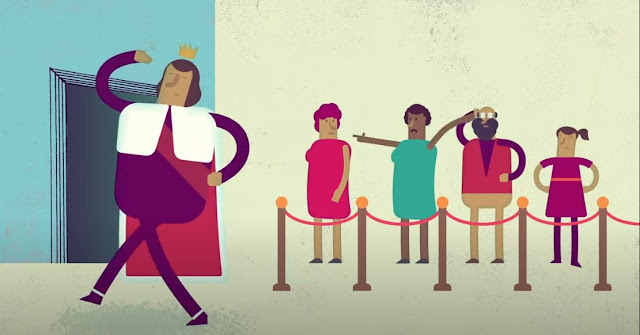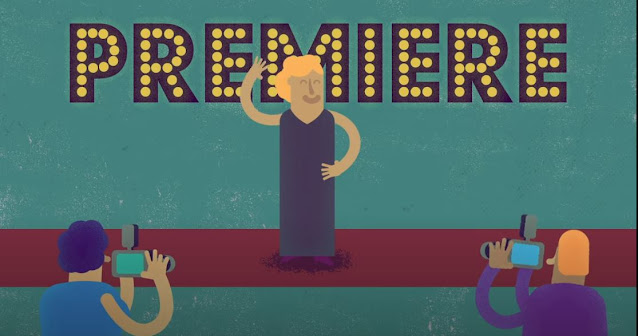Hello Happy People !!!







Welcome to the Brand New Episode, discussing a group of people that we
come across in our daily lives. Victim or Culprit let's figure out in this
episode...

So, Its been a very long time in the making of this episode, after the
10th and only drafts finally...here it goes by saying:
"Best after the Rest!!!"
So, What are we gonna explore:
Well, we all share different experiences and stories in encountering a
narcissist personality while some might not be even aware of this
personality but that doesn't change the fact that narcissism is a
behavior, not a trait or personality. This behavior is influenced by
certain factors or an outcome of serious traumas and experiences in an
individual's life that can't be kicked out easily from one's habit if the
person gets used to it but that also indicates that it is not
forever...

Quoting a great man that once said:
"How you can do something in months
that you have practised not to do for years???"
Well, there might be the answer to that but for now, let's keep it as
secret. Now you might be wondering who the f***k is a narcissist. So,
Wasting no time further let's get started...
Who is a Narcissist?
From the above question, it appears a narcissist could be a person or a
thing but let it be clear narcissist is not an object rather than a
subject in psychology which describes 'me and only me ' behavior. A
person with narcissist behavior dominates every conversation and makes
it about themselves, a person who simply lacks empathy for others or a
person with no f***k policy to other person feelings, the one who
prioritizes their needs above anyone else's, he or she which expects a better treatment. But to make this episode
more intresting and to explain the image of a narcissist in a better way
we should know 'how ' rather than 'who' which lets to classify two
types of narcissist behavior or narcissism:
- Grandiose Narcissism
- Vulnerable Narcissism
- Grandiose Narcissism


- Vulnerable Narcissism

That's enough for the starters...Let's move on to the main course that
brings us to the second question...
What Causes one to be Narcissist?

Some say that there has been no proof of why a person might behave a
narcissist according to therapists that completely depends on the wiring
of the brain while some argue that narcissism is a result of childhood
experiences that leads to the child having the wrong impression
about themselves as well as the world and people around themselves. But it
might not be the whole story.As said we may have a different experience in
encountering a narcissist but we might not be aware of the 'why' they
suffer from so let's discuss some of them as follows:
- Neglect
- Insensitive Parenting
- Excessive Criticism
- Abuse/Traumas
- Extremely High Expectations
- Genes
- Social Media
This all can be enough for knowing the cause but if you want to dive
deeper the mighty google is yours...That takes us to the most crucial
topic of this episode...
Narcissistic Personality Disorder...

|
Narcissistic Personality Disorder generally termed as NPD is best
described as Paradox. People with NPD may act superior and confident but
are often fragile and lack self-esteem.NPD causes great distress to both
the person with the disorder and those around them. These are the humans
who show the strongest symptoms of narcissism the most vulnerable culprit
as well as victims of all.NPD is very much difficult to be diagnosed
because it is found at a very later stage when the damages have already
been done to the personality as well as mentality.NPD was discovered in
the late 1980s and was first listed in the Diagnostic & Statistical
Manual(DSM).NPD isn't common it rarely affects 0.5 or 1% of the general
population one should not get confused between NPD and Narcissism a normal
person can sometimes act narcissistic but doesn't have narcissism.
Some of the symptoms of a person suffering from NPD are as follows:
- People with NPD expect to get special treatment.
- They exaggerate their own smarts, success, power, and looks.
- The lack of empathy leads them to take advantage of people, with no regrets.
- Narcissists may be extremely jealous and ultra-sensitive.
- Because they tend to be very thin-skinned, they may angrily lash out at any criticism or push-back.
- Narcissists also may lash out when they feel like they’re not getting special treatment.
- Underneath all of these traits is a deep sense of insecurity.
- And — no big surprise, when you consider all these traits — narcissists may find it super-difficult to have healthy relationships, and have loads of trouble at work or school.
Well, hope you be better careful from next time...Now, let's move on to
the last but not least one...
Dealing with Narcissists/Curing NPD

Knowing a friend who is a vulnerable Narcissist or might show symptoms of
NPD is the first step in combatting Narcissism. A person suffering from
NPD might live a normal life and hence fail to recognize that they have a
mental illness or seek help. Well, it's also true with the extent of
technology medicals come handy and you can get medical help on few clicks
counseling an expert in these fields such as Psychology or Neuroscience is
the best remedy to overcome these problems. With that said would like to
list down some therapies that mental health professionals take you
through:
- Psychodynamic Therapy: used to explore and reduce pain from pasts events.
- Cognitive Behavioural Therapy: My favorite one. It's not compulsory you need to have NPD for that but there are many other benefits related to it like reprogramming your brain to adapt to certain behaviors. It is used to interrupt and change unhelpful patterns of thinking that cause difficulty.
- Relationship Theory: used to resolve conflicts in couples or families and improve communication and problem-solving.
Therapy of NPD is long term.No matter what success depends on the
willingness of a person with NPD to acknowledge their disorder and commit
to change.
People with NPD tend to be self-obsessed, believing others are the
problem, so many see no reason to attend counseling. They can interpret
encouragement to seek help as criticism and respond very defensively,
deflecting fault onto others.
A useful technique to encourage therapy is to reflecting that they share
a problem that can be cured over time. This is also known as Supportive
Therapy.
Other Self-help strategies include:
- Spending time with people who often provide an honest reflection of who you really are.
- Participating in meaningful activities that make you feel good.
- Following through boundaries you set. Breaking them indicates you are not taking it seriously.
- Accepting that you cannot change your loved ones.
- Understanding their behavior is a reflection of their insecurities, not yours.
want to know how much narcissists you are, take this
test here
So that's it Guys From My Side For today's episode, tune in for the next
episode which is something going to be the best of all. Don't forget to
comment down below...
Shukran, Alvida, Basalamat Take Care all you lovely
friends...!!!
💙💙💙
Tags:
pshycology
